
The Darrell McClain show
Independent media that won't reinforce tribalism. We have one Planet; nobody's leaving, so let’s reason together!! Darrell McClain is a Military veteran with an abnormal interest in politics, economics, religion, philosophy, science, and literature. He's the author of Faith and the Ballot: A Christian's Guide to Voting, Unity, and Witness in Divided Times. Darrell is a certified Counselor. He focuses primarily on relationships, grief, addiction, and PTSD. He was born and raised in Jacksonville, FL, and went to Edward H white High School, where he wrestled under Coach Jermy Smith and The Late Brian Gilbert. He was a team wrestling captain, District champion, and an NHSCA All-American in freestyle Wrestling. He received a wrestling scholarship from Waldorf University in Forest City, Iowa. After a short period, he decided he no longer wanted to cut weight, effectively ending his college wrestling journey. Darrell McClain is an Ordained Pastor under the Universal Life Church and remains in good standing, as well as a Minister with American Marriage Ministries. He's a Believer in The Doctrines of Grace, Also Known as Calvinism. He joined the United States Navy in 2008 and was A Master at Arms (military police officer). He was awarded several medals while on active duty, including an Expeditionary Combat Medal, a Global War on Terror Medal, a National Defense Medal, a Korean Defense Medal, and multiple Navy Achievement Medals. While in the Navy, he also served as the assistant wrestling coach at Robert E. Lee High School. He's a Black Belt in Brazilian Jiu-Jitsu under 6th-degree black belt Gustavo Machado. Darrell Trains At Gustavo Machado Norfolk under the 4th-degree black belt and Former Marine Professor Mark Sausser. He studied psychology at American Military University and criminal justice at ECPI University.
The Darrell McClain show
If Mercy Is Transactional, What Happens To Truth?
A seven-year sentence becomes 84 days, and the country learns a lesson it won’t soon forget: when loyalty becomes currency, justice gets priced. We break down George Santos’s commutation, why it happened, and what it signals about how power is exercised and rewarded. The receipts are not in dispute—wire fraud, identity theft, donor deception—but the outcome reframes the rules of accountability. We talk through the GOP’s split response, the electoral math in Long Island swing districts, and how “political clemency” reshapes expectations for allies and adversaries alike.
From there, we pivot to a tragedy on a Charlotte light rail where a young refugee, safe from war, was killed while systems buckled and bystanders froze. It’s a painful case study in mental health failure, repeat-offender oversight, and the quiet contagion of indifference. To counter that drift, we turn to the anatomy of courage—drawing on Cornell West’s insight that courage is the enabling virtue that makes love, hope, and truth-telling possible. Examples move cultures; apathy does too. The choice between them is a daily discipline, not a slogan.
Finally, we examine assisted dying at scale: the UK’s fast-moving legislation and Canada’s expanding MAID program. The data are stark and the moral stakes high. Autonomy and compassion matter, but so do solidarity, palliative care, and how policy language lands on people who are disabled, poor, or alone. When dignity is treated as conditional—on health, cost, or utility—pressure can masquerade as choice. We argue for a society that invests in care, reduces coercion, and treats every life as non-negotiable.
If this conversation challenges you, share it with a friend, rate the show, and leave a review. Subscribe to get future episodes, and tell us: where should a humane society draw the line—and how do we hold it together?
Ladies and gentlemen, welcome back to the Darrell McLean Show and what a week it has be. George Santos, yes, that George Santos, the former congressman, the man who turned lying into an art form, the Houdini of political fraudist walked out of federal prison after serving less than three months of a seven-year sentence.
SPEAKER_00:Why?
SPEAKER_02:Because Donald Trump picked up a pen and decided that 84 days was punishment enough. Now let's pause there. 84 days. That's about the time it takes most of us to get comfortable in a new job, finish a summer internship, or pay down a credit card bill. For Santos, that's the sum total of his debt to society. Scheduled release date? September 2031, actual release date, October 17, 2025. That, my friends, is what happens when redemption is brokered not by the justice system, but by the grace of a man named Trump. Trump framed it as an act of mercy. He called Santos a rogue, suggested his sentence was excessive, and claimed politics played a role in the severity of his punishment. He even said Santos was horribly mistreated in solitary confinement, citing the former congressman's prison columns in the Long Island paper. And of course, Trump couldn't resist adding a flourish, Good Love George, have a great life, as if he was sending him off on vacation, not springing him from a federal penitentiary. But let's not forget what Santos did. He pled guilty to wire fraud, aggravated identity theft, stealing donors' money, running up charges on someone else's credit card, and lying on official forms. He was a one-man Ponzi scheme dressed up as a congressman. He stole millions, defrauded an election, and humiliated his district on Long Island. His lies were Shakespearean and Scale, Holocaust Heritage Fiction. His mother in the Twin Towers on 9 slash 11 fiction, a star volleyball player fiction. Wall Street WhizKid lending his campaign hundreds of thousands fiction. He turned his resume into a fantasy novel and conned his way into Congress, and when he got caught, he doubled down until the walls closed in. He was expelled from the House with more than a hundred Republicans joining Democrats to kick him out the first member booted, who wasn't tied to the Confederacy or already convicted of a crime. That's how Toxic Santos became. So what does it say that after all that, after finally admitting guilt, after being sentenced to seven years, he's been just shy of three months in prison and walks free with no restitution to his victims. It says loyalty to Trump matters more than truth, law, or justice. Santos wasn't commuted because he was innocent or repentant. He was commuted because he was 100% for Trump. Trump said it himself, let me put it plainly in Trump's moral economy, loyalty is the highest civic virtue. You can lie, you can steal, you can defraud an election, but if you stay on Team Trump, you might just get a geet out of girl card. Now, not everyone in the GOP is celebrating. Congressman Nicola Loda from Long Island, one of the first to call for Santos's expulsion, blasted the commutation. He said Santos didn't merely leave, he stole millions, defrauded an election, and his crimes warrant more than a three-month sentence. That's the sound of a man trying to hold onto a seat in a swing district where voters are sick of the Santos circus. For La Loda, this is a political migraine. But on the other side, Marjorie Tella Green is throwing a parade. She wrote, Thank you, President Trump, for commuting George's sentence. It was the right thing to do. She even said she spoke to Santos and that he and his family are overjoyed. Of course they're overjoyed, he just dodged nearly six years and nine months behind bars. Green has been pushing for this since August, sending letters, lobbying Trump, amplifying Santos's prison complaints. And now she's got a win to show her base. So we're watching the familiar split. Suburban Republicans who want nothing to do with Santos versus MAGA loyalists who see him as a martyr. The battle lines are clear. For Long Island Republicans, this is a liability in the 2026 midterms. For Trump's wing, it's proof that loyalty pays. And Santos himself, he played his part perfectly. While in prison, he wrote columns describing solitary confinement as a slow-motion form of torture. He painted himself as the victim, as a man broken by the system. And then he panned a direct letter to Trump, appealing to his ego. You have always been a man of second chances, a leader who believes in redemption. I ask you now, from the depths of my heart, you couldn't script it better. Santos the Fabulous became Santos the penitent and Trump played the redeemer. Here's the kicker. Santos campaigned as a low and order candidate. He wanted criminals locked up and punished. But when the system turned its cold face on him, law and order suddenly became cruel and unjust. Funny how that works. So what do we have here? We have a president who hands out clemency not on the basis of justice, but on the basis of loyalty. We have a party split between those who see Santos as a liability and those who see him as a loyal soldier. And we have the American public once again reminded that there are two systems of justice, one for the well-connected and one for everyone else. This is not just about George Santos. It's about the precedent. If you flatter the right man, write the right letter, cry in the right newspaper, your sentence can banish overnight. Victims go unpaid, the law looks cheap, and politics becomes the only real court that matters. George Santos walked free because in Trump's world loyalty outweighs fraud. That's the lesson. And that's the danger. So buckle in. Tonight we're gonna talk about what Santos's release means not just for Long Island, not just for the Republican Party, but for American democracy itself. Because if the only crime left in politics is disloyalty, then truth, accountability, and justice have already been commuted. Now, let's rewind the tape. To understand the madness of George Santos's release, you have to remember how he got here in the first place. Because George Santos wasn't just a liar in the ordinary sense. He was a liar on a biblical scale. He didn't stress the truth, he created whole new realities and invited us to live in them. Think back to 2022. Republicans were hungry for fresh faces, especially in districts where Democrats usually had the upper hand, and suddenly here comes this young Brazilian American, openly gay man, slick, well-spoken, carrying himself like he had Wall Street money in one pocket and family tragedy in the other. To the casual voter, he looked like the future, a sign that maybe the GOP was opening the tent just a little wider. But every piece of his story was rotten. He claimed his grandparents fled the Holocaust. False. He said his mother was in the Twin Towers on 9-11. False. He bragged about being a volleyball star in college. False. He even painted himself as a successful banker, so flush with cash that he could lend his campaign hundreds of thousands of dollars. False, false, false. This wasn't resume padding. This wasn't fudging a line or two. This was industrial grade fiction. Santos turned himself into a character out of a political novel and for a while it worked. He slipped into Congress on a tide of make-believe. The truth unraveled quickly, reporters dug in. Colleagues grew suspicious, and voters, especially on Long Island, realized they'd sent a fraudster to Washington. Not a charming exaggerator. And the party which should have vetted him let it slide because he could deliver a seat. That was the real fraud, the willingness to let lies ride so long as they produced a win. Santos's lies weren't just his own. They reflected a culture where winning mattered more than truth. And when the reckoning came, it was brutal. He didn't just become another crooked politician, he became the punchline, the late-night joke, the walking symbol of everything rotten in modern politics. That was Act Eye of the Santos saga, the liar who built a career out of smoke. Act II begins when the lies catch up. In 2023, the indictments hit. Wire fraud. Identity theft. Unemployment scams. Donor money siphoned off to pay for Botox, designer clothes, even OnlyFans, a congressional ethics report so grotesque it read like satire. Then came the fall, expelled from the House with more than 100 Republicans joining Democrats to say enough. He became the first lawmaker expelled who hadn't sided with the Confederacy or been convicted of a federal crime. Think about that tower political history had to stretch all the way back to the Civil War to find a comparison. That's how far gone Santos was. Eventually, the show ended. He pleaded guilty. He admitted what everyone already knew. And the sentence came down 87 months over seven years. That was supposed to be the end of the Santos story. But Santos is a man who knows how to keep the spotlight. Instead of disappearing, he started writing. From his prison cell, he sent out columns to a Long Island newspaper. He told the world about his time in solitary confinement. He described it as a slow-motion form of torture. He said he was being held in the special housing unit because of a death threat. He painted himself not as a fraud but as a victim of state cruelty. Epuis comme la pièce de resistance and direct linti adabo. A letter that read, like a son begging his father for mercy. You are a man of second chances, Santos wrote. A leader who believes in redemption. I ask you now from the depths of my heart to extend that same belief to me. That wasn't written for the public. That was written for one set of eyes. Santos knew exactly who he was talking to and he knew Trump's soft spot. Loyalty mixed with flattery. Here's the irony. Santos campaigned as a Lewand order candidate. He told voters criminals needed to be punished, the system needed to be tough. But when he tasted that toughness himself, when the cell door slammed shut, he cried foul. Suddenly Lewand Order was cruelty. Suddenly he wanted mercy. This is the throw line of American politics, law and order for you, mercy for me. Santos became a self-styled martyr, a man who claimed the system was crushing him. But let's be clear, this wasn't about justice. It was about performance. He wasn't writing to reveal truth, he was writing to script his redemption arc. And act the second closes with the stage, set for Trump to walk in as the savior. Now, into Trump. On Friday night, the announcement came. Trump had signed the commutation. Santos was walking free after just 84 days. Trump explained himself the way only he can. He called Santos a rogue. He said the sentence was excessive. He blamed politics. He claimed Santos had been horribly mistreated in solitary confinement. And then, with the flourish of a man signing an autograph, he wrote, Good luck, George, have a great life. But here's the kicker. Trump admitted Santos lied like hell. There was no attempt to pretend otherwise. The reason Santos walked free wasn't innocence. It was a rehabilitation. It was loyalty. Trump said it outright, Santos was 100% for Trump. That was enough. This is Trump's moral economy. Crimes can be overlooked, punishment erased, debts forgiven so long as you never break with him. Loyalty is the only currency. And uh, of course, Trump couldn't resist a little whataboutism. He dragged Senator Richard Blumenthal into the picture saying that exaggerating military service during Vietnam was far worse than Santos's fraud. That's classic Trump. Don't defend the act, just point to someone else and say, see, they're worse. The commutation also fit a larger pattern. Trump has been handing out pardons and commutations to his allies from January 6th defendants to MAGA activists. It's political clemency, a reward system for loyalty. And Santos just earned his medal. In Trump's world, he is the redeemer. His pen is the cross. His mercy is selective, his forgiveness transactional. And George Santos, the liar turned martyr, became the latest disciple. And that brings us to the fallout. For Republicans on Long Island, this is a disaster. Congressman Nick La Loda, who led the charge to expel Santos, didn't mince words. He said Santos didn't really leave, he stole millions defrauded in election, and his crimes warrant more than a three-month sentence. La Loda knows his voters and he knows they're sick of being the punchline. For him, Trump's commutation isn't mercy, it's poison in a swing district. But the MAGA wing sees it differently. Marjorie Taylor Greene celebrated like it was Christmas morning. She thanked Trump, praise Santos, and said she spoke to him personally. She framed it as justice. And there's the split. Establishment Republicans who see Santos as electoral kryptonite, and MAGA Republicans who see him as a loyal soldier persecuted by the system. Here's the political math. Long Island seats are critical. The House majority could swing on just a few of them. Democrats are already licking their chops, ready to tie every Republican candidate to the image of Santos walking free. Beyond the elections, though, this cuts deeper. The commutation tells America that there are two justice systems, one for the connected and one for everyone else. Ordinary people sit in prison for years for smaller crimes. Ordinary fraudsters pay restitution, but Santos, 84 days debts are raised thanks to a well-timed letter and the right allegiance. That's the GOP's dilemma. Stick with Trump, and you inherit Santos as a symbol of what loyalty buys. Break from Trump, and you risk being cast out. It's a no-win situation. And for the country. Donald Trump signs the paper, wipes away years of punishment, cancels hundreds of thousands in restitution, and tells him, have a great life. This isn't just the story of a man avoiding justice. It's the story of what our politics rewards. Santos rose by lying, fell by lying, and rose again by staying loyal. In another era, he'd be remembered as a cautionary tale. In this one, he's rewarded with freedom. And the rest of us. We're left staring at a system where justice looks less like blindfolded fairness and more like a show where the star decides who walks free. That's not law. That's not justice. That's patronage. And so I leave you with this: if loyalty becomes the only virtue, then America is no longer a democracy of laws, it's a kingdom of favors. And once you accept that, you don't have a republic anymore. You have a racket. A coda to indifference. The scene of the absurd Arena Zerutska, a 23 Ukrainian refugee escaped the inferno of war in Kyiv, only to find herself stabbed to death aboard a Charlotte Light Train on August 22nd, 2025. The attacker, DeCarlos Brown Jr., a 34-year-old with a criminal record that reads like a catalog of warnings. He'd served time, been diagnosed schizophrenic, yet was roaming free, out on costless bail. A state of rot, a refugee, someone whose concept of safety was being dismantled by bombs and artillery was murdered in transit, a mundane necessity of urban life, by a man whose freedom to walk that train car was facilitated by a justice system that treats mental illness and repeat violence like minor inconveniences. You cannot stare this in the face and pretend it's just bad luck. This is the society that insists on second chances even after numerous infractions, even while the vulnerable accumulate the cost of moral bankruptcy. The curious case of inaction bystanders watched. Phones weren't raised to perform CPR awareness, didn't translate into action. For precious minutes, the train car became a stage for passive complicity. Only after the trauma unfolded did some do something. What does it say about us that in a world wired to broadcast atrocities within seconds, many still cannot be bothered to intervene when confronted with one in real time? The architectures of failure, mental health systems, criminal justice, transit security, they all buckled. Brown's history should have been enough to confine him to treatment, not train cars. The Shaw Transit Systems contracted security, understaffed and sidelined, didn't prevent this either. In essence, a refugee flees bombs only to be killed by the bombs of systemic indifference. Names become symbols, but still flesh and blood arena wasn't a statistic. She was studying English, working at a pizza parlor, wanted to become a veterinary assistant, held a degree in art and restoration, and survived bombings in Kiev. Her aspirations had been cut short not by war but by a warped cocktail of mental health failure, justice system impotence, and public apathy. Why this should haunt us, picture it. A young woman who traded one nightmare for another because society couldn't be bothered either the system or the people around her, that's uglier than any war zone. We wring our hands about refugees, talk incessantly about security, mental health reform, so-called community values. Here, all those slogans died alongside her. If they don't spur us to action and not the kind of feckless tweeting that follows tragic footage, then their words without worth. The guillotine of indifference is fitting to close with this isn't tragedy, it's moral failure. We sanctimoniously honor freedom, sacrifice safety, then leave people bleeding in the aisle. Society didn't just fail, arena it erase the category of neighbor. That is the real crime. Anything less than radical reform of both institutions and our public conscience is more betrayal than justice.
SPEAKER_03:In our blast from the intellectual past, today we're gonna go to a question about courage from the Dr. Cornell West. Is courage Dr.
SPEAKER_00:West, courage! What is it? And is courage contagious?
SPEAKER_01:Courage is the great enabling virtue that allows one to realize other virtues like love and hope and faith. To have courage is to be willing to look unflinchingly at catastrophic circumstances and muster the will to overcome the fear, never to fully erase and eliminate the fear, but overcome the fear so that fear does not have the last word, or so that fear does not push one into conformity, complacency, or cowardice. Now, for me, in many ways, the opposite of courage is not simply cowardice, but it's even worse than that. It's indifference. And indifference to evil is more invidious than evil itself, precisely because indifference to evil is contagious. The great Abraham Joshua Hedgehog used to make this point in almost every text of his, and he's absolutely right. So that courage for me is always a difficult thing to discern and find. There's always not enough courageous folk around. There's too many folk that want to fit in. There's too many folk that want to just go with the grain. There's too many folk who want to simply opt for the seductions and temptations to become drunk with the wine of the world and intoxicated with the felicities of bourgeois existence. Courage says no, I'll think critically. And I will hope. I will never allow despair to have the last word, but I will recognize that he or she who has never despaired has never lived. But never allow that despair to have the last word. Courage to think critically, courage to love, courage to hope. That for me sits at the very center of what the Socratic vocation and prophetic witness are all about.
SPEAKER_00:In Hope on a Type Road, Doctor, you write that one of the most courageous moments of American culture actually occurred in August of 1955.
SPEAKER_01:Yeah, my dear brother, that's when the precious Emma Teal was murdered by cowardly American terrorists, was killed by conformist white supremacists. And mom teal decided not only to have the funeral on the south side of Chicago, but to keep his casket open so that all the world could see the underside of American democracy, so that the gut-bucket Jim Crow Mississippi way of life that had subjected and pushed black folk against the wall by means of violence and horror could be exposed to the world. And when she stepped to that left turn, my brother looked over and saw that his head was five times the size of his ordinary head. Tears flowing, her only son, his father fought in the U.S. Army. She looked out on the world and said, I don't have a minute to hate. And I'll pursue justice for the rest of my life. This was a moment of spiritual maturity. This was a moment of moral wisdom. This was a moral of courage that represented the best, not only of black people, not only of America, it represented the best of the human spirit. And it's precisely that courage, to think critically, that courage to love, that courage, to hope in the face of catastrophic circumstances like the death of the only precious son, that constitute a part of a larger tradition of black people that says we are terrorized, but we refuse to engage in counterterrorism. That we are dehumanized, but we refuse to dehumanize those who dehumanize us. We are being pushed to the gutter, but we refuse to stay in the moral gutter of the folk who are trying to keep us there. We take a higher ground. That's Martin King, that's John Coltrane, that's Ray Charles, that's D. Wonder, a whole host of witnesses that come out of the black context. And of course, we know that if in fact America responded to terrorism and the way black people responded to American terrorism, it might be a better world. Or to put it another way, if black people responded to American terrorism the way the Bush administration responded to 9-11, then that'd been civil strife because not a civil war every generation. And that's been our white brothers and sisters, when they see Negroes, you ought to just give us a standing elevation. Thank you for Fergett Marshall. Thank you for Duke Ellington. Thank you for Martin Luther King Jr. Thank you for Tony Marson. How in the face of such terror can you produce such high quality people committed to love and justice? Thank you for James Bowen. How in the face of so much hatred do you get that love oozing out of every text in the fire next time? That's why black people are the key, the moral and political key for the future of American democracy when we are at our best. So I close Rob again. Is courage contagious? Examples are the go-card of judgment. Bad examples, bad judgment. Great examples, great judgment. Courageous examples, courageous judgments. Courage is contagious. It has a way of oozing from one soul to another soul, one person to another person, if we are influenced by the examples of those persons who exemplify the courage to think critically, the courage to love, the courage to hope. That's precisely why the Nelson Mandelas and the Mohammed Gandhi's and Martin Luther King Jr. and Fannie Lou Hamers and Phil Barrickens and Abraham Joshua Hemstell's as courageous examples do, in fact, inspire all of us when we're at our best, do in fact force us to examine our own cowardice, force us to examine our own conformity and complacency. So is courage contagious? Yes, when we have examples of persons who we are willing to take seriously, we are willing to be unsettled by, we are willing to be challenged by, and hence attempt to aspire to the level that they exemplify.
SPEAKER_03:So let me dig in for a second, because we're not just talking about policy or laws, we're talking about what it means to be human, what it means to live and die in a civilization grounded in dignity, not in convenience. Because right now, a very powerful force is pressing on the West, and it's pressing on the West with the idea that life is not sacred, life is optional. That dignity depends on health, utility, purpose. And when those fade, maybe the logical answer is exit. So I think I called it a few months back when I said that it is denying and destroying human dignity. That's exactly the knee-jerk you're seeing in debates over assisted suicide, or as they now often call it, uh medical assistance in dying. If you see the acronym anywhere, it will be M A I D. It's not just helpful and helping the dying, it is actually redefining death as a service, and it is happening and it's happening very fast. Let's start in the United Kingdom. There's a bill in the works, the terminally ill adults, end-of-life bill in England and in Wales, which would allow competent adults with terminal illnesses, which they say would be less than a year to six months to live, request to end their lives with assistance. Public opinion, actually, on this is extremely strong. Roughly 73% of Britonians back the bill as it stands. And that is a coming out of a poll from UGO in June 19th, 2025. In one poll, 79% thought that doctors should definitely or probably be allowed to end the life of a person who is terminally ill upon request. Now that is coming out of the natural center for social research. So here's the tension. When the public is overwhelmingly in favor, legislators move quickly. But when quickly meets life and death, that is where the risk of erosion of safeguards tend to appear. Look at the parliamentary process. Overstrike successors were actually changed. The High Court judge requirement was dropped for a multidisciplinary panel. Now that shift may seem technical, but when you stack it against a vulnerable population, these aren't just footnotes. The key question here is does legal assisted death become the symbol of compassion or the surrogate for a failing in care? And if we normalize it, what stops the next step? Now let's cross the border to Canada. The story in Canada is not just a legislation in motion, it's already happening. The law actually passed in 2016. Um now from there the scope expanded. Chronic conditions, non-terminal illnesses, and mental health triggers. The slide is actually well documented. And here are the hard numbers. In 2023, about 4.7% of all Canadian deaths were via MAID. That number rose about 15.8% over in 2022. Earlier in 2022, 13,241 people died by MAID, a 31.2 increase uh percent increase over 2021. So stop for a second. One in 20 people in Canada who died chose or could have chose assistant dying. That is massive. Eligibility is broadening. You must be 18 years of age, eligible for health coverage, competent, voluntary, have a grievous or irredeemable uh medical condition, etc. But these words, reasonably foreseeable death, were removed in recent expansions, making the door even wider. The moral question is this when the state says we can help you die as readily as we can help you live, what message gets sent to the weak? What message gets sent to the disabled? What message gets sent to the poor? What message gets sent to the homeless? What message gets sent to the socially isolated? In Canada, some disability rights groups have flagged the MAAD is being used by people who feel that they have no other option because of lack of support, because of loneliness, because of fear of being a burden on family members, friends, and society. If I you and I'm riding shotgun with you, I'd say this is not just about compassion. It's about risk. Because when options become default or expected, that's when we're going to have to look. That's when we're going to need to stop because that's where we stop honoring dignity and start honoring the disposal of human beings. So let me zoom out. What undergurs this shift? For much of Western history, especially the Western history rooted in a Christian tradition, the human person has been seen as the a Mago Dei or the image of God. Worth not because of strength or productivity, but because of the existence of weakness, suffering, disability, they do not diminish anyone's value. They call the community's virtue to action. But when instead the measure becomes utility cost, quality, then you step into a very dangerous territory. Once you say we'll help you die if you want, the logic flips to maybe you should die if you're too costly, too lonely, too powerless. Remember the 20th century history. Programs like the Nazis Ekantong T4 began with life unworthy of life. They can apply to the disabled and the mentally ill. Now we're not saying that today's laws equal the horrendous evil of the Holocaust, but the structural logic is similar. Redefinition of human worth. The pressure of finances, demographics, shrieking communities, and all of this push assists dying from a rare exception toward routine and option. The culture begins to whisper once you're old or broken, better off gone. That's the drift we're witnessing. So here is the hope. The alternate is already alive. And the story is not new. Suffering doesn't end in death. Not always. But it does need meaning. It needs company. It needs care. It needs witness. The early church did not abandon the exposed infant. Medieval monasteries didn't turn away the leper. The Christian tradition is built on hospitals and they did that before the governments did. The measure of a civilization is actually on how it treats is weakest. So what does the Christian witnesses say now? We should say that life has intrinsic value even if it's messy, painful, and unproductive. We should say suffering is real, but our response is solidarity, not commanding that you action. We should say community matters, medicine matters, palliative care matters. The answer is not always death. We should say real dignity means enabling life, not empowering determination. So look at what we know. In Britain, polls show large public support for assisted dying, but they also say the bills is too rushed and complex. One survey found 62% said that the bill was too complex and polarized and rushed through. That tells you even among supporters there's concern. Good, we need people to be concerned. So where does this leave us? Back at our crossroads. In Britain, legislation is advancing. The public is supportive. The safeguards are being negotiated. In Canada, the experiment is well underway. The stats show rapid growth. In the United States, states already have assisted suicide laws, Oregon and California, if you want to know where. And more are watching the Canadian data. If we accept this uncritically, one of two things will happen. Either it stays a narrow exception, and maybe society stays vigilant about age, disability, and coercion, or it becomes normalized, deaths done for convenience, cost, or burden. I offer the phrase destroying human dignity, and I hear that because dignity isn't just to be affirm when life is easy. It's most required when life is actually hard. When choice is narrow, when vulnerability is high, if dignity means only strong, independent, healthy human, then we already lost. So we must ask, are we a society that accompanies the suffering? Or a society that expediates the suffering or expedites the suffering? Are we a community that says, we'll walk with you through the valley of the shadow of death? Are we a community that says, here is your exit ramp? So here's the bottom line. If we want to preserve Western civilization in any meaningful sense, we must guard how we die as closely as how we live. Because the line between them is thinner than we pretend that it is. Make no mistake, assisted dying isn't the end of a medical conversation. It is the end of a moral conversation. It says this life can be ended by design, not just by chance. It asks under what conditions, with what safeguards, and for what overarching philosophy of human worth. If you believe every human bears dignity, not because of what they do, but because of who they are and because of whose they are, then you'll resist any laws that treats dying as a transaction. Not because you hate the weak, but because you revere every single life. If you believe dignity only applies when conditions are right, then you concede value is conditional. And once value is conditional, there is no there is no point that you cannot redefine. So let's stand together on this one. Let's be clear-eyed on this one. Let's fight for a better palliative care, more community support, more investment in the weak and disabled. But let us refuse to accept death as a solution rather than life as the hope. Because this hour is late. The momentum is real, and the next 10 to 20 years will decide which civilization we become. Let us not be the ones who dismantle dignity by an avalanche while believing we're offering compassion. Let us be the ones who held the line for every life, even when no one else could or would. That's the line. The choice is ours. See you on the next episode.
Podcasts we love
Check out these other fine podcasts recommended by us, not an algorithm.

The LUNSB Show with T-Bone and ChickBrew
Tony Knuckles
Over opinionated with Josh Scott
Josh scott
The Jamie Kilstein Podcast
Jamie Kilstein
The Back Row with Jamie Kilstein
Jamie Kilstein
Your Calvinist Podcast with Keith Foskey
Keith Foskey
BJJ Mental Models
Steve Kwan
Renewing Your Mind
Ligonier Ministries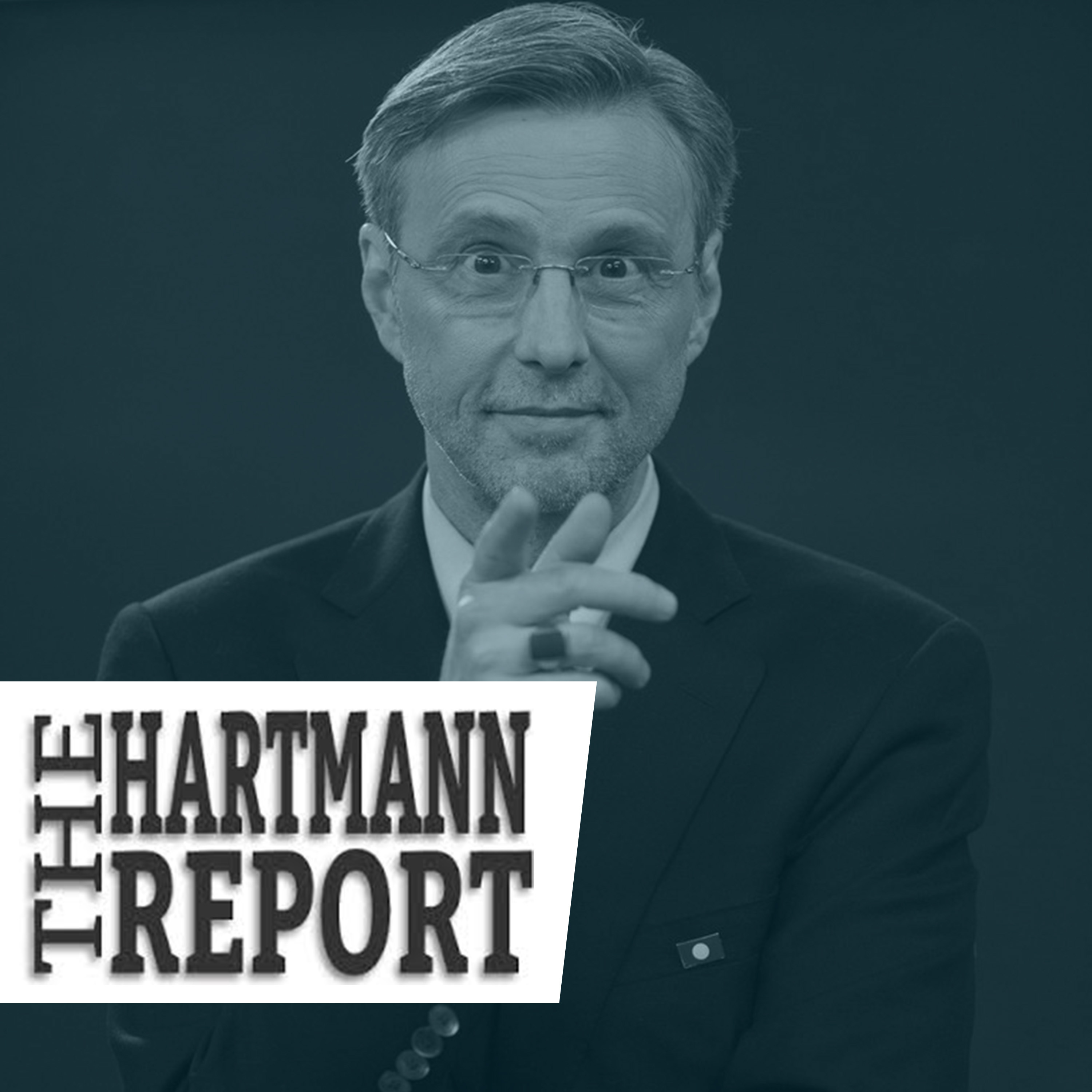
The Hartmann Report
Thom Hartmann
The Glenn Show
Glenn Loury
#RolandMartinUnfiltered
Roland S. Martin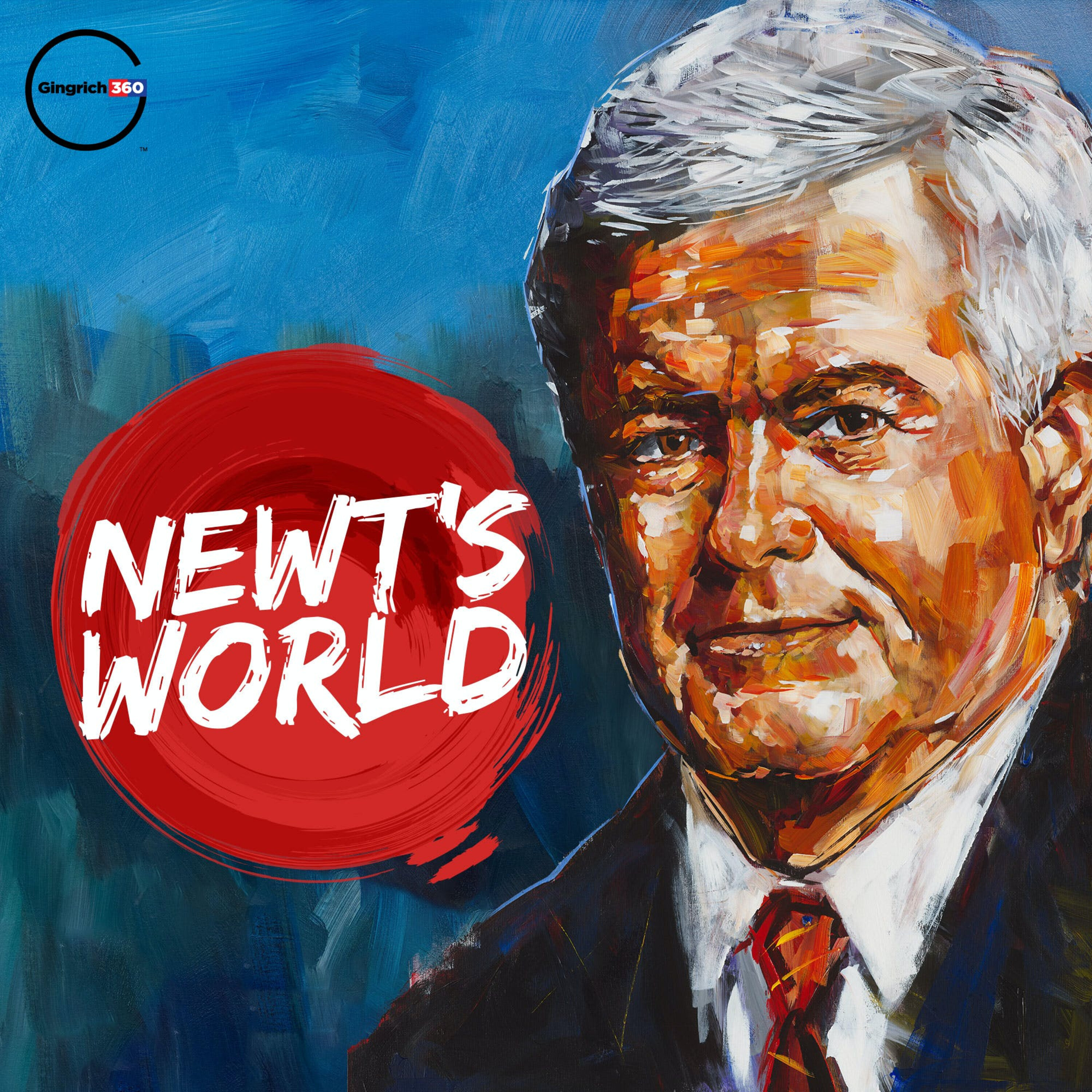
Newt's World
Gingrich 360
Pod Save America
Crooked Media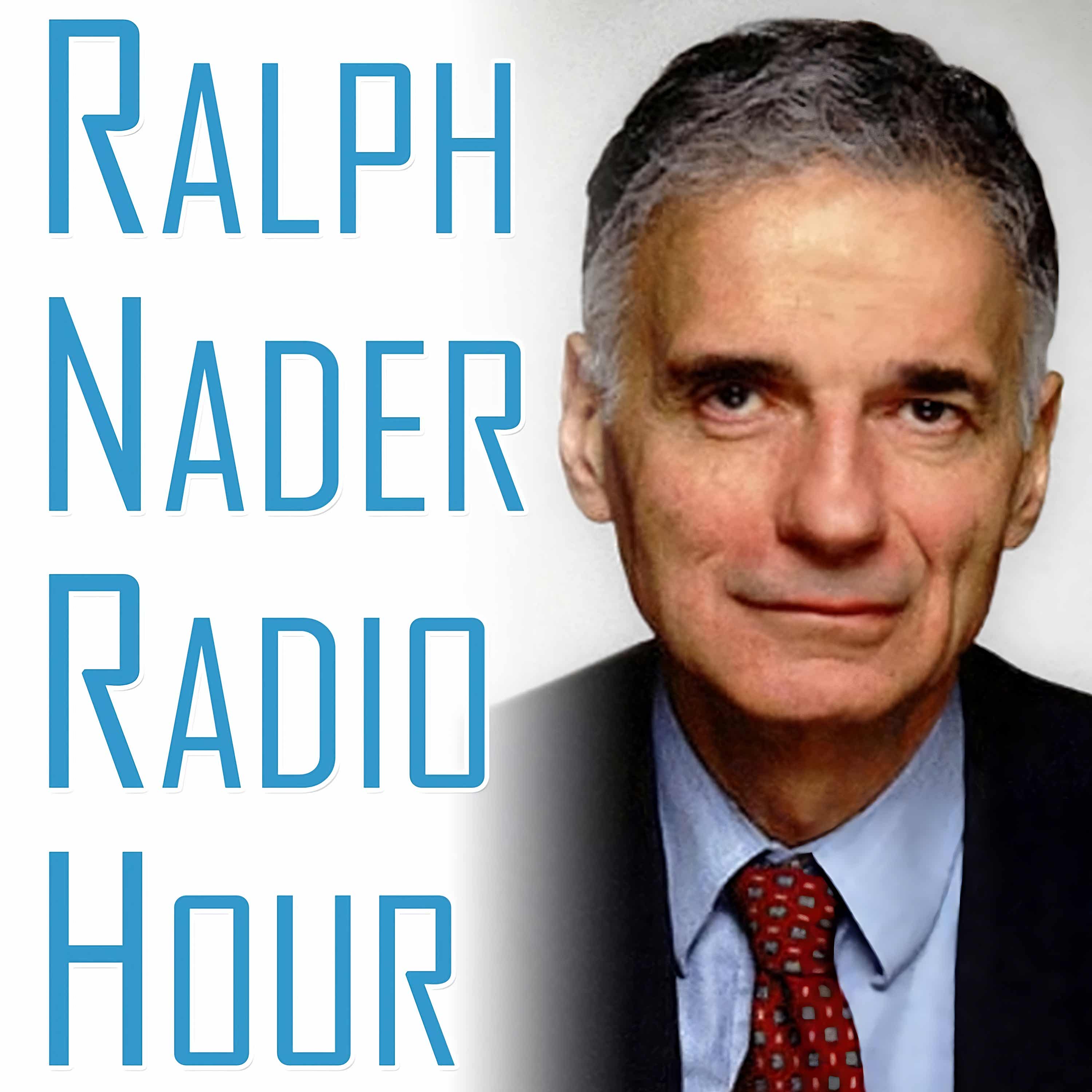
Ralph Nader Radio Hour
Ralph Nader
Bannon`s War Room
WarRoom.org
Bannon’s War Room
dan fleuette
The Young Turks
TYT Network
The Beat with Ari Melber
Ari Melber, MS NOW
The Damage Report with John Iadarola
TYT Network
The Majority Report with Sam Seder
Sam Seder
The David Pakman Show
David PakmanGet A Grip with Kendall Reusing
Kendall Reusing
Ultimately with R.C. Sproul
Ligonier Ministries
Grace to You: Radio Podcast
John MacArthur
The Briefing with Albert Mohler
R. Albert Mohler, Jr.
StarTalk Radio
Neil deGrasse Tyson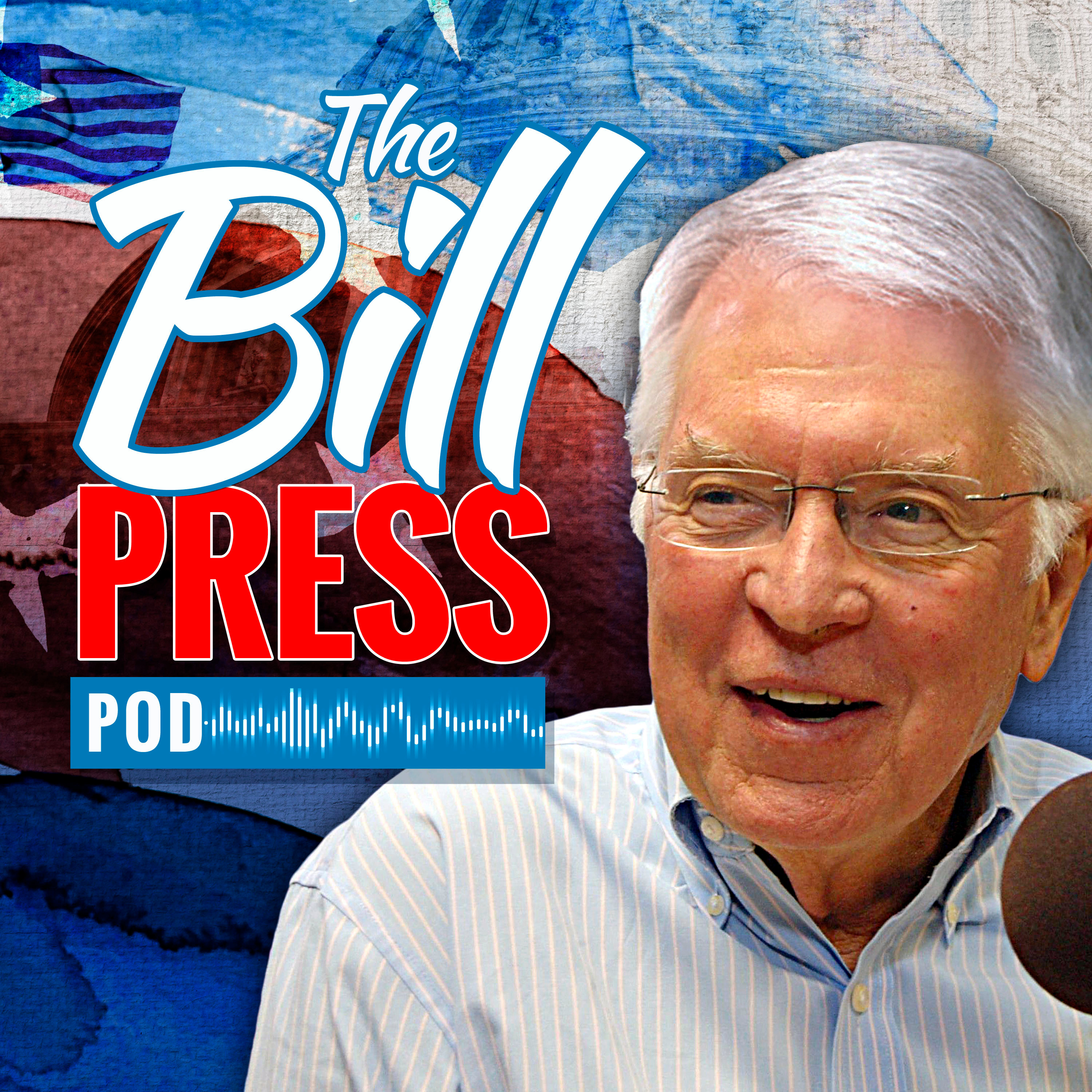
The Bill Press Pod
BP Pods
Ask Pastor John
Desiring God
The Weekly Show with Jon Stewart
Comedy Central
Ask Ligonier
Ligonier Ministries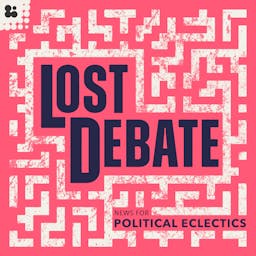
Lost Debate
The Branch
Coffee-Time-Again
Dale Hutchinson
5 Minutes in Church History with Stephen Nichols
Ligonier Ministries
The Ezra Klein Show
New York Times Opinion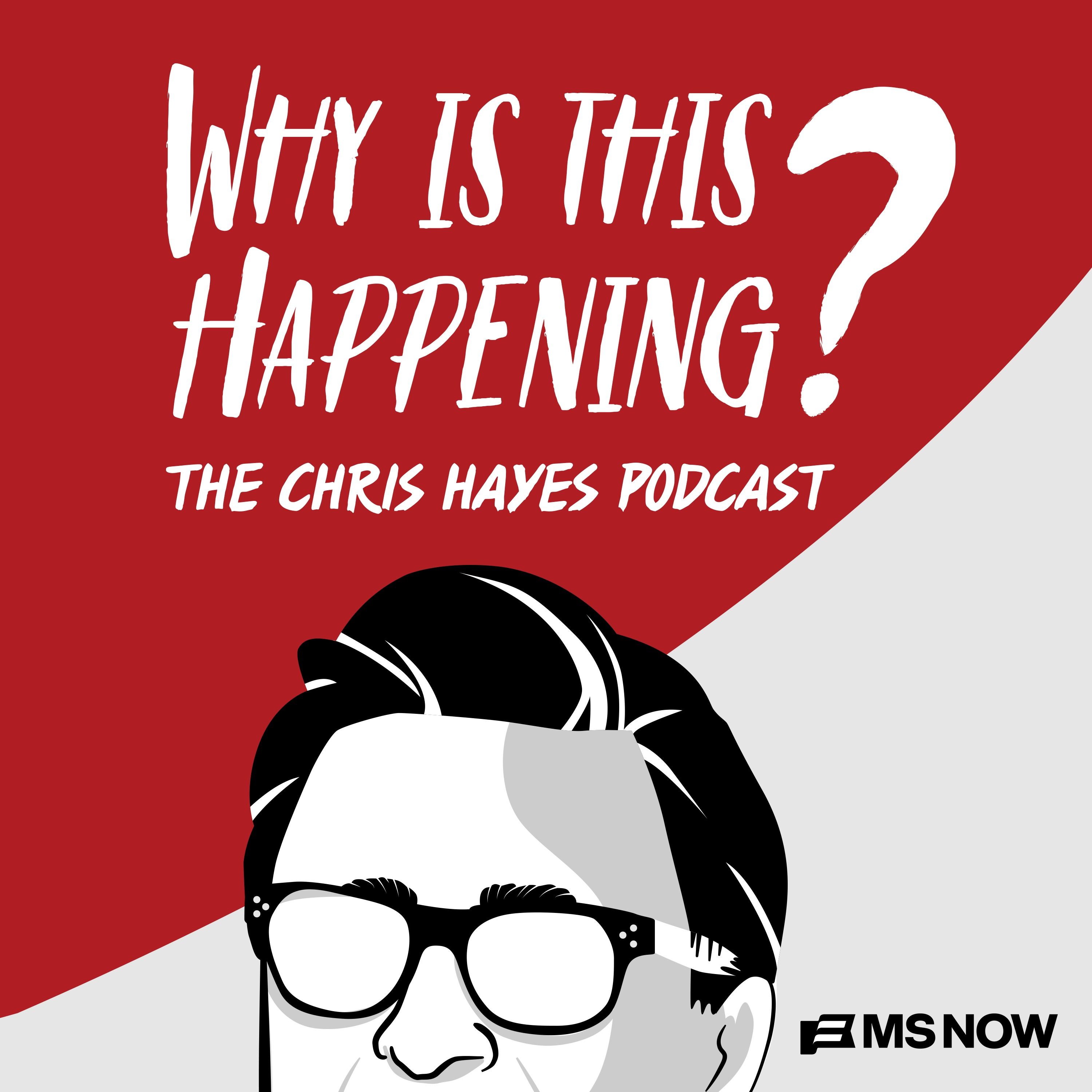
Why Is This Happening? The Chris Hayes Podcast
MS NOW, Chris Hayes
Changed By Grace
PodPoint
The Benjamin Dixon Show
The Benjamin Dixon Show
Thinking in Public with Albert Mohler
R. Albert Mohler, Jr.
Who Killed JFK?
iHeartPodcastsThe MacArthur Center Podcast
The Master's Seminary
Jean Jacques Machado : No Gi Required
Jay Zeballos
Trauma Bonding
Jamie Kilstein
This Day in History
The HISTORY Channel
The Ben Shapiro Show
The Daily Wire
The Sean Hannity Show
Sean Hannity
Breaking Points with Krystal and Saagar
iHeartPodcasts
The Kyle Kulinski Show
Kyle Kulinski